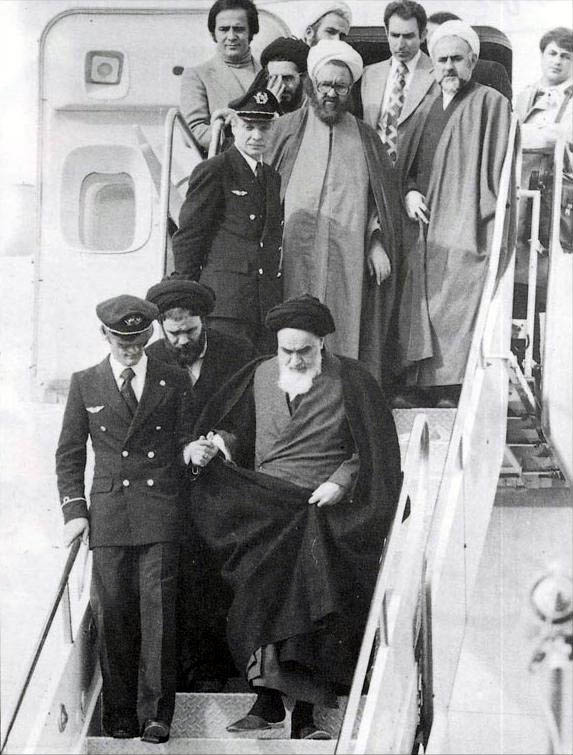 June 12th, 2009 – 42,5 million Iranians are voting today; a record turnout has already been announced by the central Teheran gouvernment as well as by the myriad of international news agencies and democracy watch groups attending. The incumbent candidate, President Mahmoud Amadinejad, is seeking a second term with a conservative, hard-line Islam platform. This election would not be so interesting if there wasn’t an important contender with a real chance to win and a promise for great change. Candidate and former Prime Minister of Iran Mir Hossein Mousavi aims not only to eliminate gouvernment corruption and economic difficulties (we will see) but also to reform the Islamic state itself.
June 12th, 2009 – 42,5 million Iranians are voting today; a record turnout has already been announced by the central Teheran gouvernment as well as by the myriad of international news agencies and democracy watch groups attending. The incumbent candidate, President Mahmoud Amadinejad, is seeking a second term with a conservative, hard-line Islam platform. This election would not be so interesting if there wasn’t an important contender with a real chance to win and a promise for great change. Candidate and former Prime Minister of Iran Mir Hossein Mousavi aims not only to eliminate gouvernment corruption and economic difficulties (we will see) but also to reform the Islamic state itself.Primarily, Mousavi has promised the elimination of gouvernment-sanctioned discrimination and inequality towards women. Concretely, he wishes to overturn strict Islamic dress code requiring the concealing Hijab robe, to democratize education for them and to provide equal judicial rights on par with male Iranians. Finally, and most surprisingly, he wishes to abolish the institution of Iranian “morality police” whose job has been to imprison, whip and humiliate any woman who infringes the dress code or acts “unwomanly”.
Needless to say, the past weeks have seen massive (and when the Middle-East says massive they mean hundreds of thousands and up) demonstrations by women, students and generally the youth of the country for a new gouvernment that would do away with the archaic traditions of the past. Astonishing me still was a statement by Ayatollah Ali Khamenei, technically the Iranian theocratic “Supreme Leader”, saying “I recommend them to just vote based on their own views and decisions”. This is surely a strange yet encouraging endorsement of democracy by one of the world’s last remaining religious head of state. On the other hand, president Amadinejad is not so fond of the concept and has tried to get the elections postponed or even cancelled, accusing his opponent of conspiring with Israelis to falsify documents and graphs to discredit him (I also have strange suspicions that the Israelis are responsible for the constant disgusting weather I’ve been having at home).
Don’t get me wrong, Iran is still far from being a free democracy; the Ayatollah, his Guardian Council and the President all retain an ultimate right to veto anything but this is a novel step in a radical direction for seemingly such a stable conservative and unified Muslim nation. I use the term “seemingly” because this is a country that can pop a revolution out of nowhere and completely change their situation if need arises.
Change changes everything...for about a week
Indeed until 1978-89, Iran was rooted in its rich heritage of Antique Persian and Greek monarchy and was thus administered by a Shah (King). Wasting away the country’s economy through sumptuous banquets, he entertained all western leaders to which he was fervently allied. Having had enough, the religious leaders of Iran, championed by the Ayatollah Khomeini, took to the streets by millions and forced the last Shah into exile. Then, by popular referendum, the country was declared an Islamic republic under the theocratic leadership of the Ayatollah that would no longer take sides in the Cold War. 1 year is all it took for a drastic and world-changing revolution. In fact, the western world had paid little attention to the Middle-East until then; now, I could argue it has been the central focus of international attention for almost a decade.
With the revolution, social freedoms were guaranteed, the Koran was applied to the administration of the country and a new Golden age was ushered; this was not necessarily so in practice. Whereas healthcare became affordable, literacy rates skyrocketed due to the obligatory reading of the Koran and standards of living steadily rose, women’s right were greatly reduced and a certain police state emerged enforcing a strict code of morality that, in some ways, became more oppressive that the old monarchy. This dichotomy combined with the time passed since the Iranian revolution have left kids finding it “impossible to understand what their parent were so passionate about”.
All in all, the election is not won yet for Mr. Mousavi yet on his shoulders lies a great burden of change along with a national historical memory of the pros and cons of past change.
(Pictured: Ayatollah Khomeini returns from exile and takes the helm of the country in 1979 - Amadinejad dosen't look like the type that would take defeat very well.)
End.





1 comment:
Update - It seems as though Amadinejad has won by a margin of 67% but his opponent cried foul play and they both, in effect, have declared victory. My blog seems rather optimistic for something that may turn into a civil war.
Post a Comment